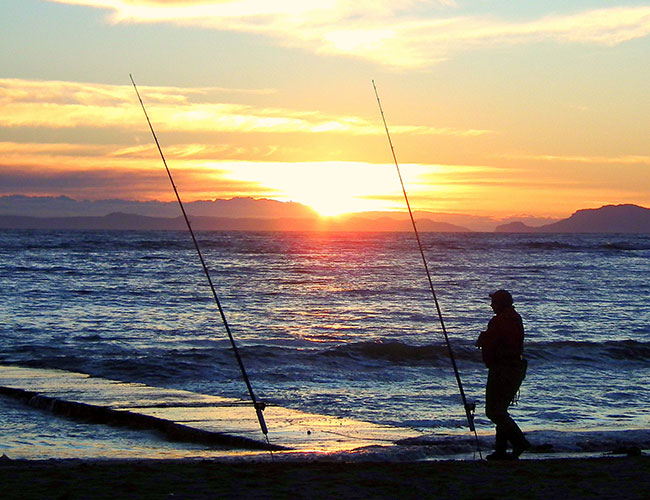Crete, the largest of the Greek islands, is surrounded by the azure waters of the Mediterranean Sea, a source of sustenance and livelihood for its inhabitants for millennia. Fishing has played a pivotal role in the island’s economy and culture, with techniques passed down through generations. Learning traditional Cretan fishing techniques offers an enriching experience, connecting one with the island’s heritage and the timeless relationship between the Cretan people and the sea.
Historical Background
Fishing in Crete dates back to the Minoan civilization (circa 2700-1450 BCE), evidenced by frescoes and artifacts depicting fish and fishing activities. The Minoans were advanced in their seafaring skills, and fishing was crucial for their diet and economy. Over centuries, these techniques evolved, incorporating influences from various cultures that interacted with Crete, including the Venetians and Ottomans. Despite modern advancements, traditional fishing methods remain in practice, preserving the island’s maritime legacy.
The Techniques
1. Line Fishing:
Line fishing is one of the most straightforward and ancient methods. It involves using a simple fishing line with a hook and bait. Traditional Cretan fishermen often use natural baits like worms, small fish, or octopus. Learning this technique includes understanding the best times and locations for fishing, recognizing different fish species, and knowing how to prepare and maintain the fishing line.
2. Net Fishing:
Net fishing, particularly the use of small nets called “vrakia,” is a common traditional method. This technique involves casting nets from small boats or from the shore. The process requires skill in spreading the net evenly and knowing the right depth and timing to catch fish such as mullet, sea bream, and sardines. Trainees learn how to repair and maintain the nets, a crucial skill for any traditional fisherman.
3. Spearfishing:
Spearfishing is both an art and a sport in Crete, requiring precision and patience. This method involves using a spear or harpoon to catch fish while diving. It’s an ancient practice that has remained popular due to the island’s clear waters and abundant marine life. Learning spearfishing involves training in diving techniques, breath-holding, and the proper use of spears. Safety and environmental awareness are also emphasized, ensuring that the practice is sustainable and respectful of marine ecosystems.
4. Trap Fishing:
Trap fishing, using devices like “krevates” (fish traps), is another traditional technique. These traps are typically made from reeds or other natural materials and are designed to capture specific types of fish. The traps are placed in strategic locations and checked regularly. Learning this technique includes crafting the traps, setting them effectively, and understanding the habits of target fish species.
The Learning Experience
Learning traditional Cretan fishing techniques is best done under the guidance of experienced local fishermen. These experts not only teach the practical skills but also share stories and insights into the cultural significance of fishing in Crete. Workshops and guided tours are available, often starting with early morning excursions to the sea, reflecting the daily routines of local fishermen.
Participants learn the various techniques hands-on, gaining practical experience and a deep appreciation for the skill and knowledge involved. The process often includes preparing the day’s catch, offering a full-circle experience from sea to table. This immersion provides a unique perspective on the island’s culinary traditions, as fresh fish is a staple of Cretan cuisine.
Cultural and Environmental Impact
Engaging with traditional fishing practices fosters a connection to Crete’s cultural heritage and promotes sustainable fishing. These methods are inherently eco-friendly, designed to ensure that fish populations remain healthy and abundant. By learning and practicing these techniques, participants contribute to the preservation of both the environment and the cultural traditions of the island.
Modern Relevance
In today’s world, where overfishing and environmental degradation are pressing concerns, traditional fishing techniques offer valuable lessons in sustainability. These practices emphasize balance, respect for nature, and the importance of maintaining marine biodiversity. By adopting and promoting these methods, modern fishing can become more sustainable, ensuring that future generations can continue to enjoy and benefit from the sea’s resources.
Conclusion
Learning traditional Cretan fishing techniques is a journey into the heart of the island’s maritime culture. It provides a hands-on, immersive experience that connects participants with the history, traditions, and sustainable practices of Crete. Whether you are a seasoned angler or a curious traveler, mastering these techniques offers a deeper understanding of the island’s relationship with the sea and contributes to the preservation of its rich cultural heritage. Through this learning experience, the timeless rhythms of Cretan life and the enduring bond between the people and the sea come vividly to life.


